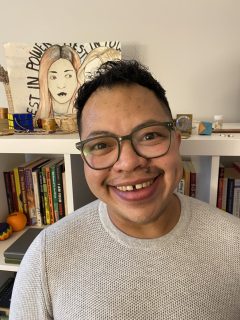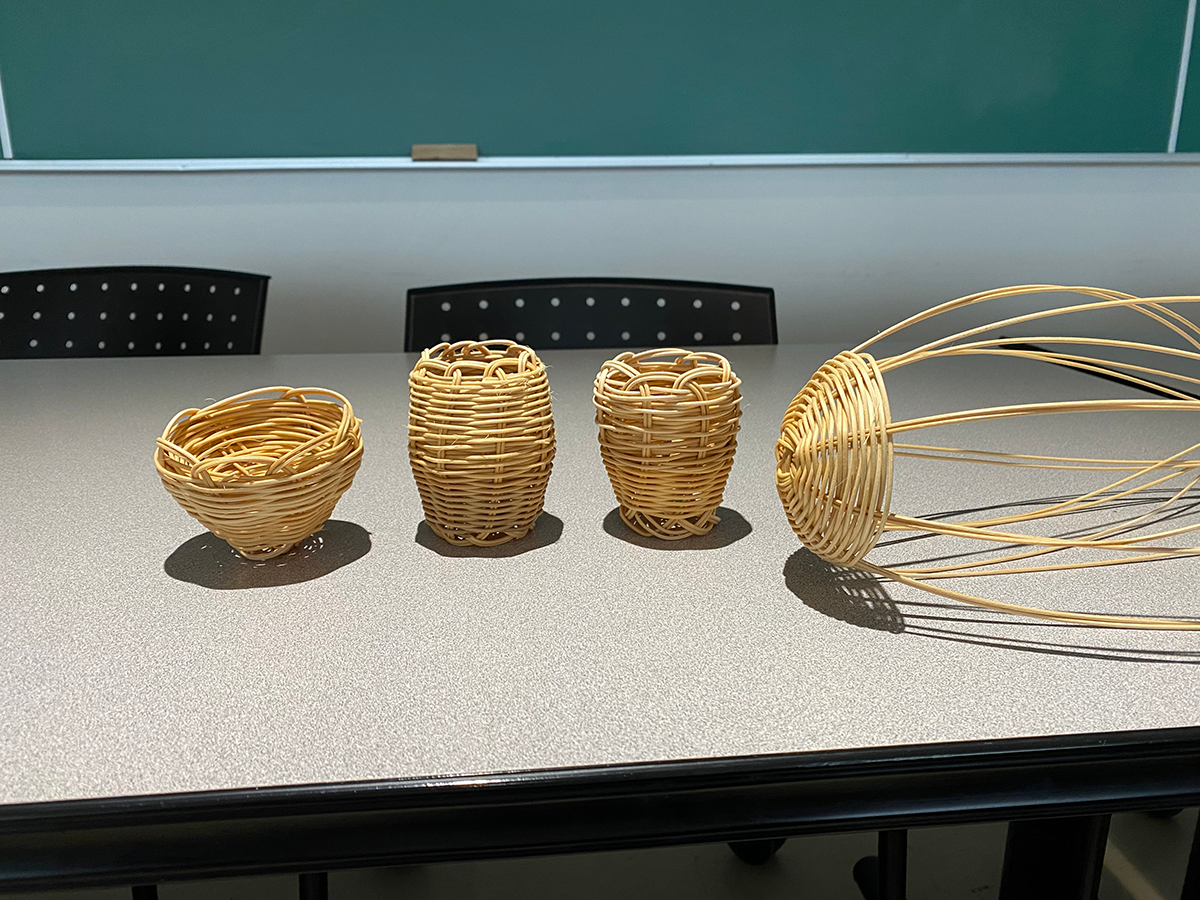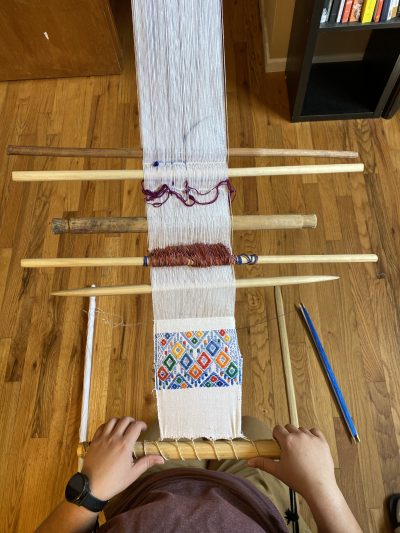By Laura Blanchette

Prof. Andrés C. López
For Prof. Andrés C. López (he/they), incorporating basket weaving into pedagogy is a tool for decolonizing the classroom and challenging colonial academic ways of knowing.
Prof. López is an associate professor in the School of Indigenous and Canadian Studies at Carleton. Last term, he guided a cohort of graduate students through the skillsharing process of making doublewoven rivercane baskets, a practice that originated with the Cherokee people in what is now called North Carolina and the American southeast.
Incorporating skillshare in the classroom contributes to a paradigm shift towards decolonized academic spaces by introducing students to Indigenous ways of knowing.
Prof. López’s graduate course, Gendering Canada: Queer of Color Critiques (CDNS 5202), used doublewoven basketry to explore the mutual dependencies between queer and Indigenous studies. The weaving process begins at the basket’s base and continues up from the inside before flipping directions and weaving a second wall that encompasses the first. The result is a sturdy basket with two walls.
According to Prof. Qwo-Li Driskill, a Cherokee scholar at Oregon State University, the doublewoven basket acts as a metaphor for the need for queer and Indigenous studies to exist together.

Doublewoven baskets created by Prof. López’s graduate class in fall 2023.
“I had students make baskets, so that we could actually physically touch it and see it as a way of thinking about our scholarship, or what that might look like, even though not all of the students were Indigenous in the class. It’s a call and critique to both [Indigenous studies and queer studies],” said Prof. López, “because without us working together, without us thinking of each other as one full basket, things don’t work, and we wind up erasing people.”
Incorporating skillshare into the classroom has also informed other elements of his pedagogy. In larger classes, some students will learn faster than others and begin teaching one another. Prof. López describes this as creating a communal classroom space, where he is no longer the expert, the sole teacher, but rather the students have an opportunity to participate in teaching. Prof. López brings the idea of the communal classroom into his classes even when he is not incorporating skillshare.
Outside the classroom, he practices his Maya ancestor’s traditional backstrap weaving.

Prof. Andrés C. López’s backstrap weaving.
For skilled weavers, Prof. López says they can see a finished scarf and know the creation story from when it was woven.
“This is a creation story,” said Prof. López. “We have been doing this for millennia, we have ways of creating knowledge, we have ways of passing histories and stories.”
Prof. López learned Cherokee doublewoven basketry from Prof. Driskill and helped facilitate workshops in classrooms and for conferences that incorporated skillshare. Prof. Driskill explores “decolonial skillshare” as a pedagogical practice that highlights Indigenous rhetoric to continue traditions, teach the next generation of Indigenous Peoples, and strengthen alliances with non-Indigenous people by building a strong sense of mutual understanding.